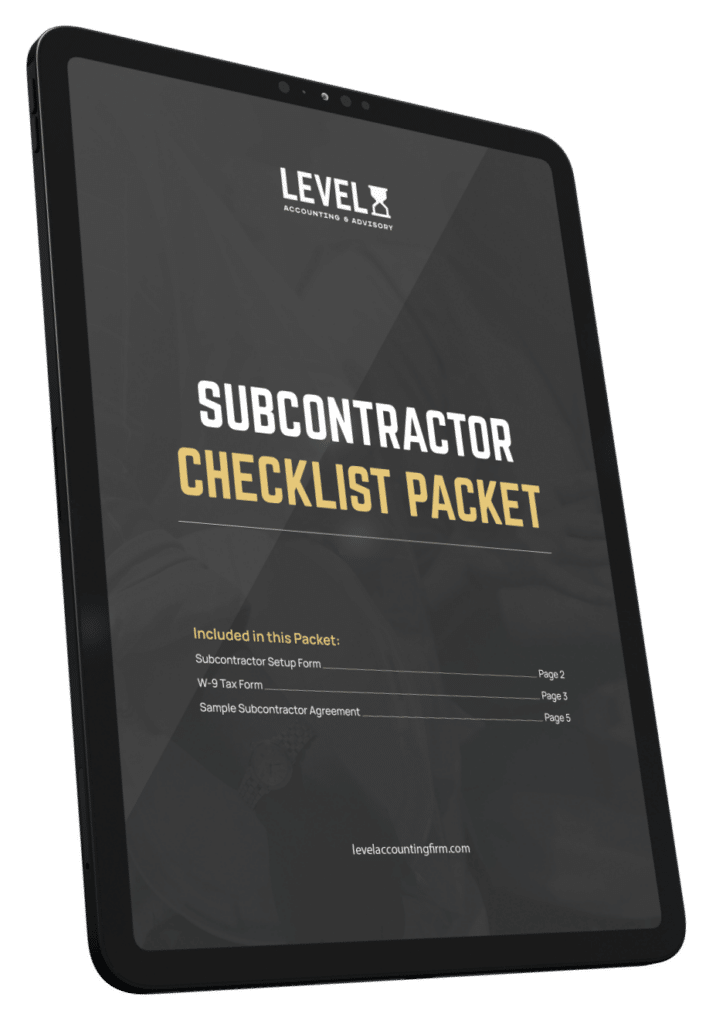One of the most crucial decisions you’ll face as a business owner is determining how to pay yourself as an S-Corp. It’s not as simple as writing yourself a check whenever you need money – there are specific rules, regulations, and tax implications to consider.
Let’s dive into everything you need to know about S-Corp owner compensation, from salary requirements to tax advantages.
The Basics: Understanding S-Corp Owner Compensation
When you’re an S-Corp owner, you typically have two ways to pay yourself:
- Salary (W-2 wages)
- Distributions (owner draws from company profits)
Here’s the kicker: The IRS requires S-Corp owners who provide services to take a “reasonable compensation” as salary before taking distributions. This isn’t just a suggestion – it’s a requirement that comes with some serious penalties.
So, to be clear, if your business is an S-Corp, the owner must take a paycheck with taxes taken out (like any other employee), before taking distributions.
The “Reasonable Compensation” Requirement
The IRS isn’t playing around when it comes to reasonable compensation. They want to ensure S-Corp owners don’t dodge payroll taxes by taking all their compensation as distributions. But what exactly is “reasonable”?

Factors determining reasonable compensation include:
- Your qualifications and experience
- Time devoted to the business
- Industry standards and local pay rates
- Size and complexity of your business
- What you’d pay someone else to do your job
Pro tip: Document how you arrived at your salary figure. If the IRS comes knocking, you’ll want this paper trail.
Tax Benefits: Why the S-Corp Structure Rocks

Here’s where things get interesting (and potentially profitable). The S-Corp structure can offer significant tax advantages when structured correctly:
- Split Income Strategy: You pay employment taxes (Social Security and Medicare) only on your salary, not on distributions.
- Lower Self-Employment Tax: Unlike sole proprietors who pay self-employment tax on all earnings, S-Corp owners only pay employment taxes on their salary.
- Qualified Business Income Deduction: Both your salary and business profits may qualify for the 20% QBI deduction under Section 199A.
The Do’s of S-Corp Owner Compensation

- DO establish and document a reasonable salary
- DO maintain separate business and personal bank accounts
- DO process payroll regularly (monthly or bi-weekly)
- DO withhold and pay all required payroll taxes
- DO file all required payroll tax returns on time
- DO keep detailed records of how you determined your salary
- DO consult with a tax professional for your specific situation
The Don’ts of S-Corp Owner Compensation

- DON’T take only distributions without a salary
- DON’T set your salary artificially low to avoid payroll taxes
- DON’T mix personal and business expenses
- DON’T forget to make regular payroll tax deposits
- DON’T ignore state-specific requirements
- DON’T take inconsistent or sporadic salary payments
- DON’T assume last year’s salary is still reasonable this year
Federal Regulations and Compliance
The IRS takes S-Corp compensation seriously. Key federal requirements include:
- Filing Form 941 quarterly for payroll taxes
- Annual W-2 reporting
- Federal unemployment tax payments
- Social Security and Medicare withholding
- Income tax withholding
Remember: State regulations may differ and could include additional requirements. Always check your state’s specific rules for S-Corp operation and payroll.
Setting Up Payroll: DIY Options
Modern payroll services make it easier than ever to handle S-Corp payroll yourself. Here are some reputable options:
- Gusto: User-friendly interface, automated tax filings, and great customer support
- ADP Payroll: Customer support, user-friendly interface
- OnPay: Specifically good for small businesses with transparent pricing
- Patriot Software: Budget-friendly option with solid features
- SurePayroll: Owned by Paychex, designed for small businesses
- Square Payroll: Great if you already use Square for other business functions
Practical Tips for Success
- Regular Review: Assess your salary annually or when business circumstances change significantly.
- Accepted Approaches for Reasonable Compensation:
- “Cost Approach: AKA the “many hats” approach – works best for small business owners who typically wear multiple hats (or perform a variety of duties)
- Market Approach: Generally works best for medium-sized businesses where the owner performs predominantly managerial tasks
- Income Approach: AKA the “independent investor test” and generally works best for outliers”
- To reach more about these approaches, head to the IRS Job Aid Download
- Emergency Planning: Set up procedures for continued payroll processing if you’re temporarily unavailable.
- Cash Flow Management: Ensure your business maintains adequate cash reserves for salary and tax obligations.
Common Pitfalls to Avoid
Watch out for these common mistakes that can trigger IRS scrutiny:
- Taking no salary while the business is profitable
- Dramatically fluctuating salary without business justification
- Failing to maintain proper payroll records
- Missing payroll tax deposits or filings
- Taking loans instead of salary to avoid payroll taxes
Conclusion
Paying yourself as an S-Corp owner requires careful planning and consistent execution. While the tax benefits can be substantial, they come with significant responsibilities. Stay compliant, document your decisions, and don’t hesitate to seek professional guidance when needed.
Remember: The money you spend on good tax and legal advice is often far less than what you might pay in penalties or additional taxes for getting it wrong. When in doubt, consult with the professionals at our firm who can guide you through the specifics of your situation.
Like this post? Check out our other blogs:
- 1099 vs W2: What Contractors Need to Know About Hiring
- BOI Reports: Your How To Guide to Filing
- Cash vs Accrual Accounting for Construction Businesses
- 1099s: Everything Contractors Need to Know
- Why Should Contractors Consider an S-Corp Election
- More can be found Here
Disclaimer: This article provides general information and should not be construed as tax, legal, or accounting advice. Always consult qualified professionals for guidance specific to your situation.


